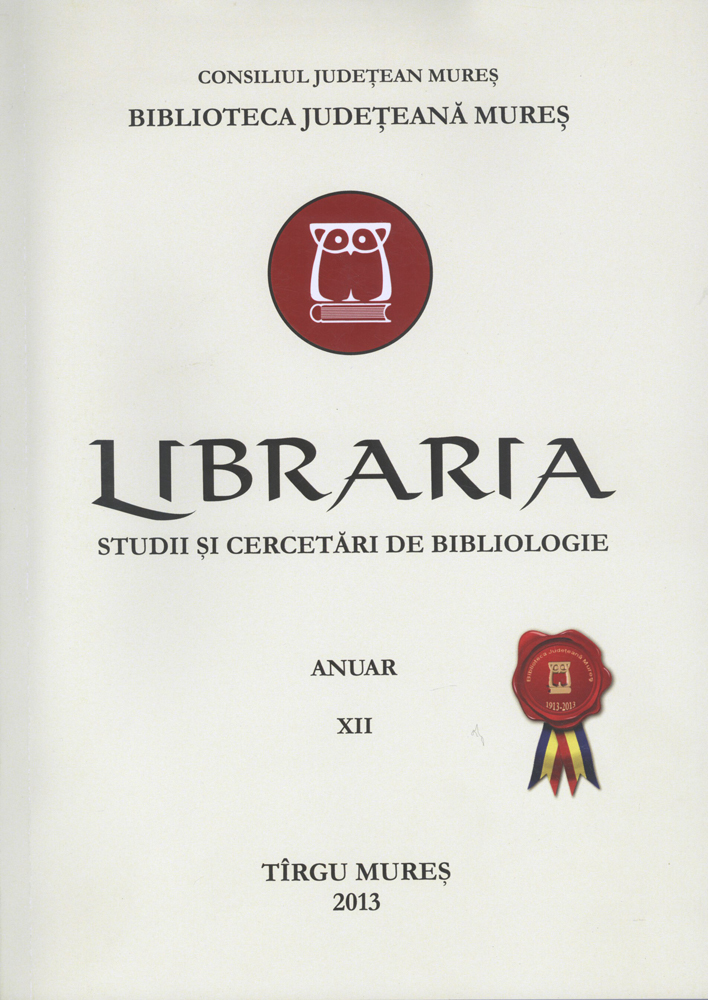Cărţile şi lectura la sfârşitul perioadei comuniste. Biblioteca de acasă
Books and Reading at the End of the Communist Era. The Library at Home
Contributions to the history of Romanian and foreign libraries
Author(s): Ana-Maria GajdoSubject(s): Library and Information Science, Local History / Microhistory
Published by: Biblioteca Județeană Mureș
Keywords: forbidden books; communism; home library; elites; censorship; Libraria; Biblioteca Județeană Mureș; biblioteconomie; bibliologie; carte veche;
Summary/Abstract: This paper aims to draw attention to a social phenomenon: reading as defying communist authorities, as a way to escape from the reality of the communist regime, as one of the few ways to gain access to what is happening in the world, to information. Authoritarian regimes always have declared war to the books and this war often meant the burning of the books. Why so much hatred against books? Because they bring „ideas of force,” models, allow comparisons and the totalitarian regimes do not like comparisons, they should be the „absolute” model. In the late 80's, communist censorship was not so vigilant. Prohibited books were on the market. Romanians were reading books banned by the authorities and in every house there were special places for their storage, away from the eyes of visitors. Each library at home has become an institution in itself, with clear rules for loan and storage. I believe that a whole generation of intellectuals was formed during the communist era, by the „forbidden reading.” Also, the home library phenomenon could explain, along with other ways of „resistance through culture,” how were returned at the rightful place, the forbidden books.
Journal: Libraria. Studii și cercetări de bibliologie
- Issue Year: XII/2013
- Issue No: 12
- Page Range: 268-278
- Page Count: 11
- Language: Romanian

